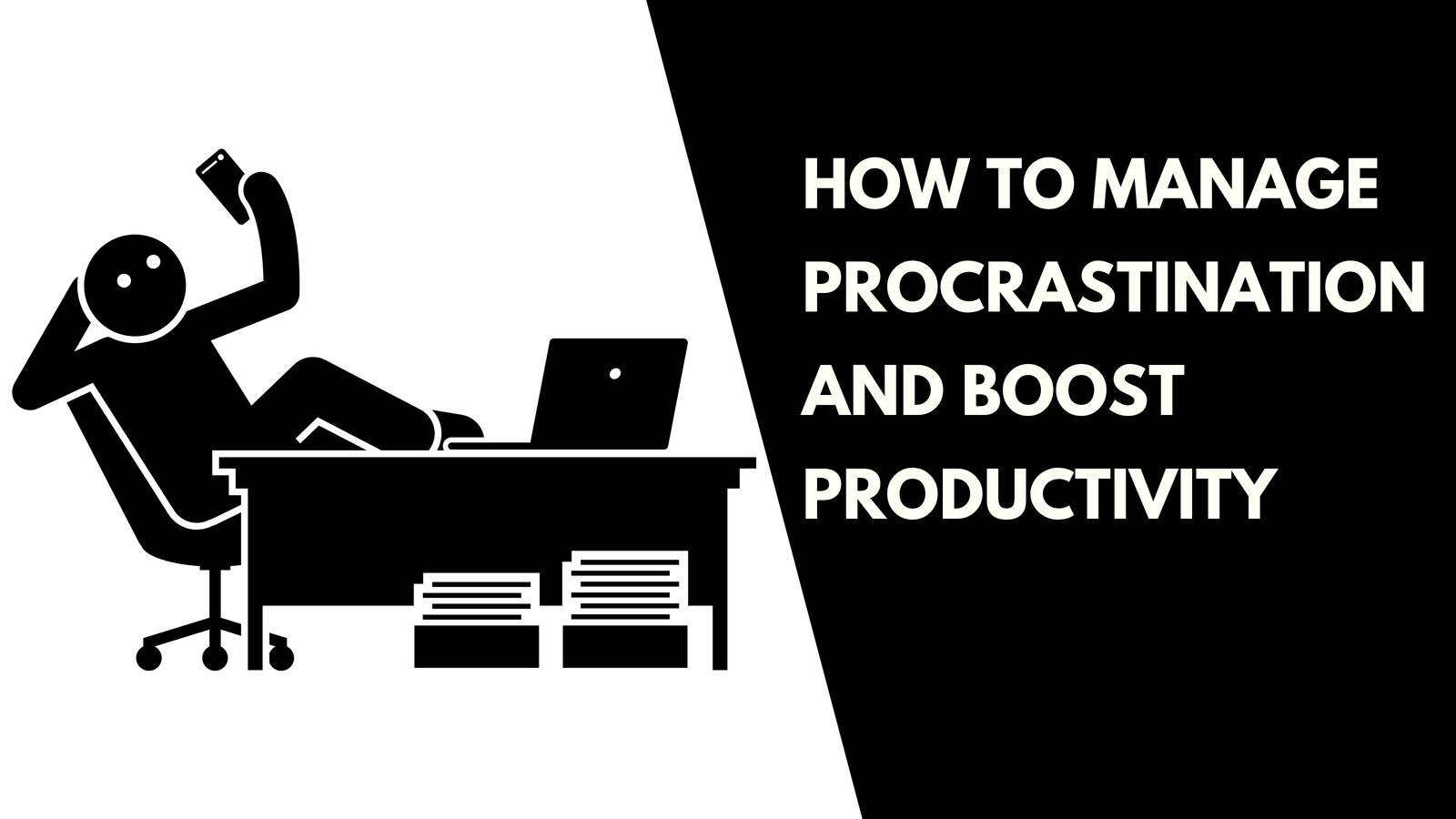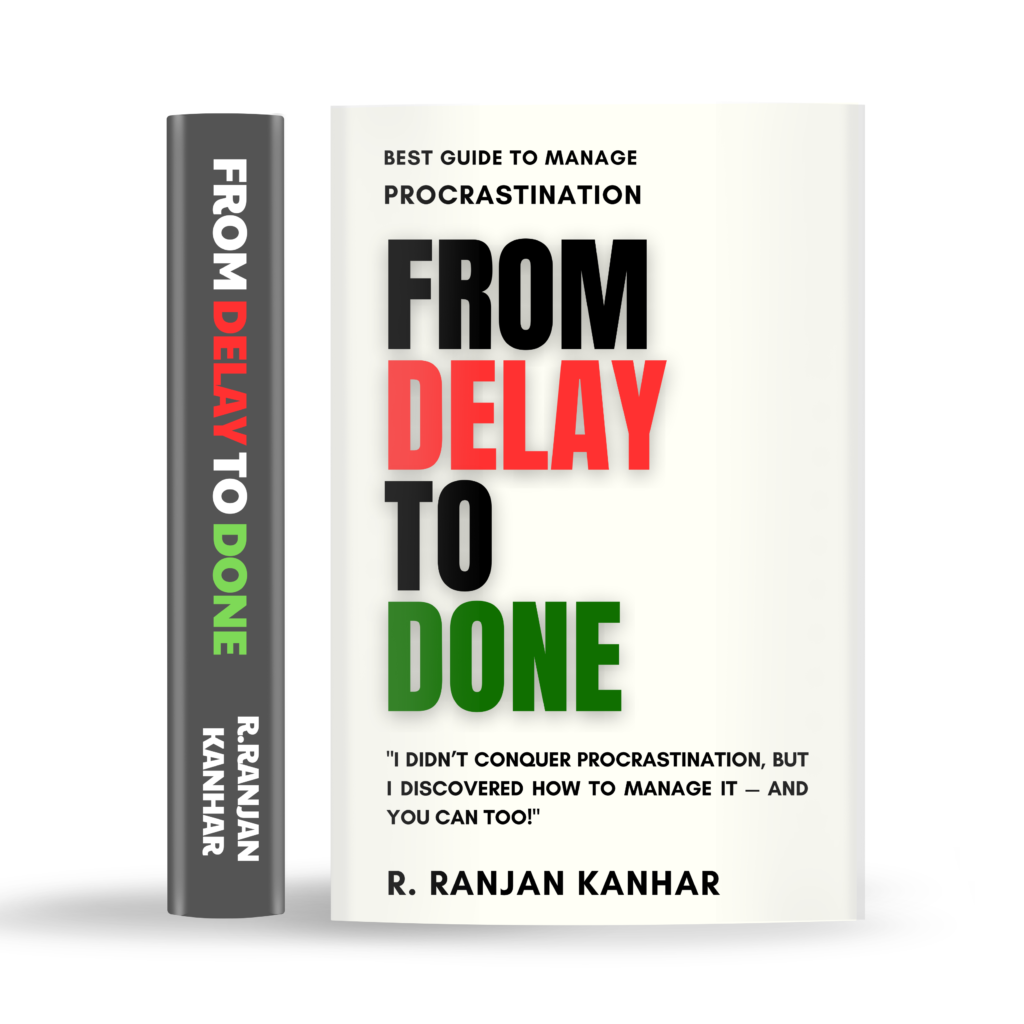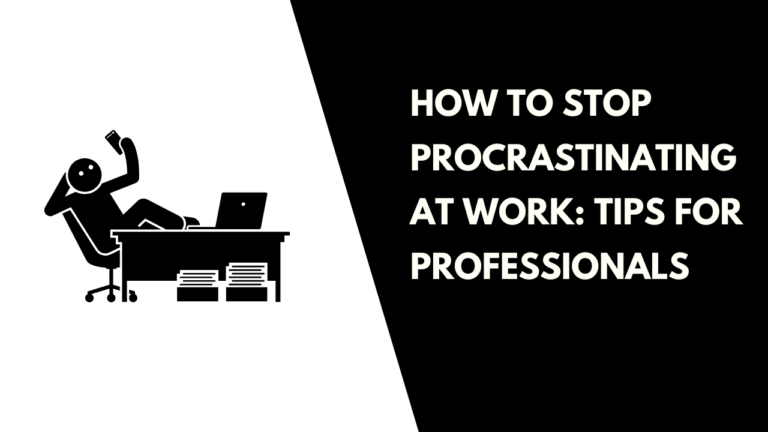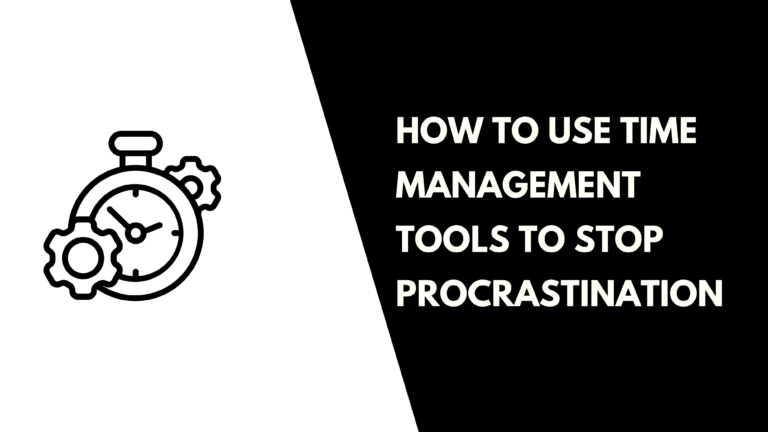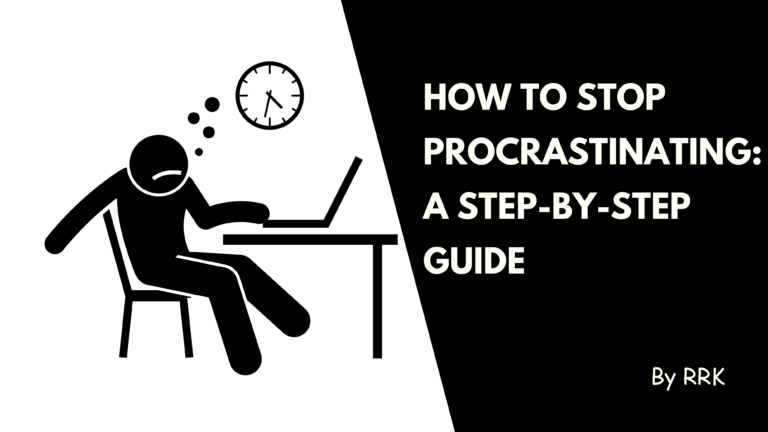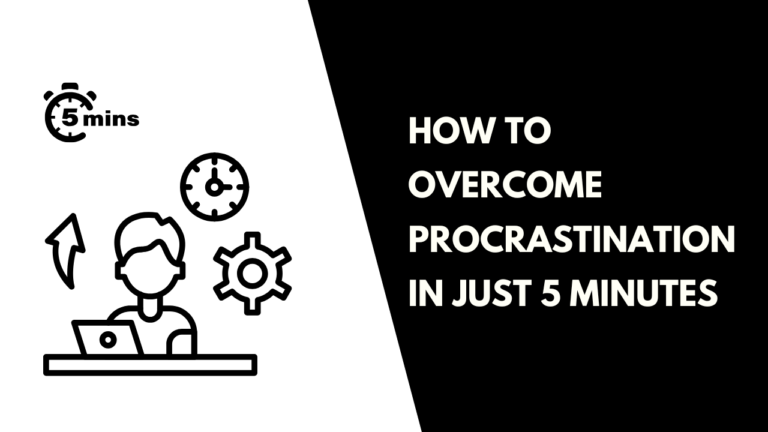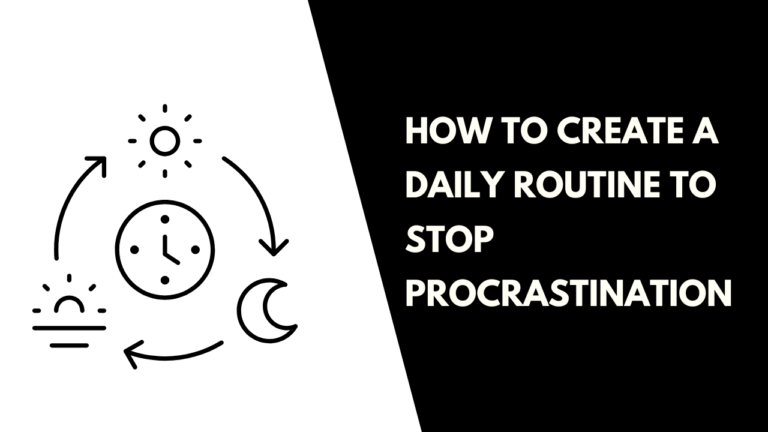How to Manage Procrastination and Boost Productivity
Introduction – How To Manage Procrastination
Let’s be honest—procrastination is something we’ve all faced. That lingering project, that unread email, or even that workout you’ve been promising to start “next Monday.” Sound familiar? Procrastination is more than just putting off tasks; it’s a productivity killer that sneaks into your routine, leaving you feeling overwhelmed and unaccomplished. But the good news is, you’re not alone in this battle, and there are practical ways to overcome it.
Table of Contents
ToggleIn this article, we’ll explore how to manage procrastination effectively and, in turn, boost productivity to help you achieve your goals.
What is Procrastination?
Procrastination is the act of delaying or postponing tasks, often to the point where it negatively impacts your performance or well-being. Sometimes, we procrastinate because the task feels too big or because we’re simply not motivated to do it. Other times, it’s due to perfectionism or fear of failure.
The Impact of Procrastination
How Procrastination Affects Mental Health
Procrastination isn’t just about unfinished tasks; it can also lead to stress, anxiety, and even guilt. The more we delay, the more these feelings snowball, making it harder to start.
Its Impact on Work, Personal Goals, and Relationships
In the workplace, procrastination can lower the quality of your output and hurt your reputation. In personal life, it can keep you from achieving your dreams or even strain relationships as commitments get delayed or forgotten.
Understanding Productivity
At its core, productivity is about accomplishing tasks efficiently. It’s not just about working harder; it’s about working smarter. When you’re productive, you’re not only able to tick off your to-do list, but you also feel a sense of accomplishment.
The Relationship Between Procrastination and Productivity
Procrastination is the archenemy of productivity. Every hour spent scrolling through social media instead of working on a task is time that could have been used to move closer to your goals. However, it’s also important to note that rest is crucial to staying productive, so finding the right balance is key.
Signs You’re Procrastinating
Procrastination doesn’t always look obvious. Sometimes, it disguises itself as “busy work,” like rearranging your desk instead of tackling that big project. If you find yourself constantly delaying important tasks or feeling guilty about wasted time, you might be procrastinating.
Common Triggers of Procrastination
Fear of Failure or Perfectionism
You might be avoiding a task because you’re afraid you won’t do it perfectly.Lack of Motivation or Unclear Goals
When you’re not clear about what you want to achieve, it’s easy to push tasks aside.
How to Manage Procrastination
Set Realistic Goals
Break down your big dreams into small, actionable steps. This makes them less overwhelming and more achievable.
Use Time Management Techniques
Techniques like the Pomodoro Technique can help you focus for short bursts, followed by breaks to recharge.
Break Tasks into Smaller Steps
A large task can feel daunting, but dividing it into smaller pieces makes it more manageable.
Boosting Productivity: Practical Tips
Create a Daily Routine
Having a set schedule helps you stay focused and prevents the need to “decide” what to work on next.
Prioritize Tasks
Use tools like the Eisenhower Matrix to identify which tasks are urgent and important, and tackle those first.
The Role of Environment in Productivity
Your environment plays a huge role in your focus. A cluttered desk often leads to a cluttered mind. Make sure your workspace is clean, quiet, and distraction-free.
Overcoming Mental Blocks
Mental blocks are often rooted in self-doubt or fear. Combat this by practicing self-compassion and celebrating small wins.
Using Technology to Combat Procrastination
There’s an app for everything these days, including procrastination! Tools like Trello for task management or Forest to stay focused can be game-changers. Just remember not to overuse them—ironically, that can become a form of procrastination too!
The Power of Accountability
Share your goals with a friend or join an accountability group. Knowing someone is keeping tabs on your progress can be a great motivator.
Building Better Habits
Habits don’t form overnight, but with consistency, they become second nature. Start small, like spending 10 minutes a day on a challenging task, and build up from there.
Conclusion
Procrastination doesn’t have to define your life. By understanding why it happens and implementing practical strategies, you can take control of your time and boost your productivity. Remember, progress is better than perfection. Start small, stay consistent, and you’ll be amazed at what you can achieve.
FAQs
1. What are some quick fixes for procrastination?
Quick fixes include using the Pomodoro Technique, setting timers, and starting with the easiest task on your list.
2. Can procrastination ever be a good thing?
Sometimes! Procrastination can allow your brain to subconsciously process ideas, leading to creative solutions.
3. How do I stay consistent in my efforts to boost productivity?
Build routines, track your progress, and celebrate small wins to maintain momentum.
4. Are there specific apps that help with procrastination?
Yes! Apps like Todoist, Focus@Will, and Freedom are excellent tools to help you stay focused.
5. How long does it take to overcome procrastination?
It varies by individual, but with consistent effort, you can see improvements in weeks to months.
“Stop postponing your dreams! From Delay to Done is your ultimate guide to conquering procrastination. Grab your copy today on Amazon!
